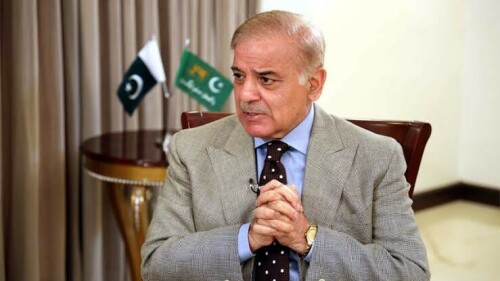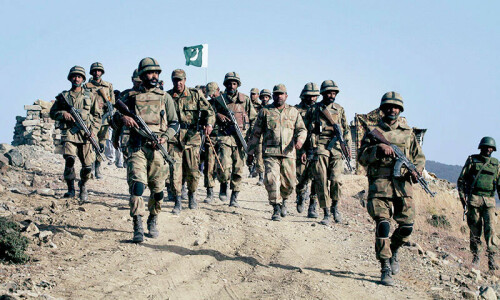DHAKA, Sept 9: The Bangladesh High Court granted bail to detained former prime minister Begum Khaleda Zia on Tuesday, clearing the way for her release after 12 months behind bars on corruption charges.
The court bailed her on the remaining two of four charges brought after her arrest in September 2007 by the army-backed interim government.
Political leaders and analysts said Khaleda’s bail was an important step toward holding a credible parliamentary election by year-end, paving the way for a peaceful transition to democracy.
The election has been long overdue since the interim government cancelled one after taking charge in January 2007, but it moved to try to cleanse politics of corruption before holding another poll.
About 170 key politicians, mostly from the BNP and Hasina’s Awami League, were detained in a huge anti-graft drive after the interim administration took charge in January 2007 following months of political violence.
Last week the High Court bailed Tareque Rahman, Khaleda’s son and political heir apparent, on six corruption charges.
That cleared the way for Tareque, senior joint secretary-general of her Bangladesh Nationalist Party (BNP), to seek treatment abroad for what his doctors say is a broken backbone.
Over the past two months more than 50 people have been freed and more have sought bail, police and prison officials said.
Political analysts say the government’s mass release of these apparently tainted leaders and their cronies is part of efforts to ensure all the main parties, notably the BNP and Awami League, contest parliamentary polls set for December.
The BNP and Awami League -- which alternated in power over 15 years up to 2006 -- had both threatened to boycott the elections, prompting analysts and diplomats to say that no polls without them would be credible.
“Having failed to drive promised political and economic reforms, the (interim) government is now seeking a safe exit for itself, allowing politicians to take control of everything again,” said Ataur Rahman, president of the Bangladesh Political Science Association.
“They are doing it either under compulsion or (of) their own will, as time is running out, and apparently without caring for where the country is heading,” he told Reuters.
Critics say freeing all these perennially feuding politicians to return to the public stage, while their corruption cases are still pending in the courts, means entrusting them with the key task of taking Bangladesh back to democracy.
It would also deny the widespread popular demands from cross sections of Bangladeshi society to allow a new generation of leaders to emerge.
The interim government headed by former central bank chief Fakhruddin Ahmed vowed to stage a free and fair election acceptable to all, once the nation’s politics were cleansed of endemic corruption.
But its recent moves have cast doubt on its commitment to eradicate graft and abuses by the politically powerful.
Now, it seems, the administration is desperate to fulfil its pledge to hand power to an elected government by January 2009.
Defence analyst Syed Mohammad Ibrahim, a retired army major-general and head of the small Kalyan (Welfare) Party, said all-party participation in the coming election was the key to saving the country from “extra-constitutional rule”.
Khaleda, who heads one of the country’s two biggest parties, denied any wrongdoing while in power.
Her lawyers said she would leave jail very soon.
“Now no further obstacle remains on her way to freedom,” said attorney Rafiqul Haque. Khaleda’s arch rival and co-detainee, former prime minister Sheikh Hasina, was granted parole in June to travel to the United States for treatment of ear and eye complaints.—Reuters















































Dear visitor, the comments section is undergoing an overhaul and will return soon.